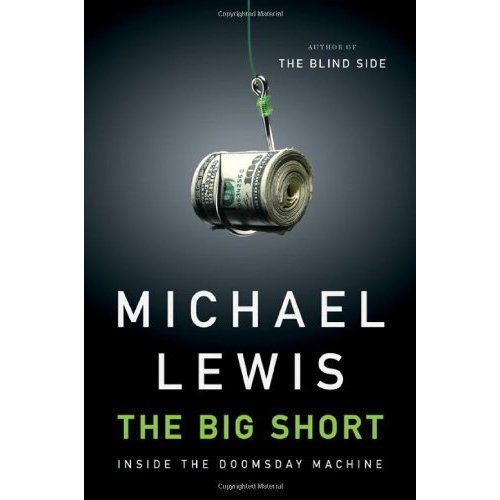Michael Lewis has done it again. The Big Short is a must read, even if you don't know anything about finance. With his trademark ability to identify unlikely heroes, he chronicles the lives of people who bet against subprime mortgages. The prose is lucid. The explanations make sense. And Lewis explains what happened behind the scenes leading up to Wall Street's 2008 debacle.
Here are three of my takeaways, not meant to be definitive, from The Big Short:
The good guy is the villain.
Subprime mortgages, according to Lewis, were a train wreck in the making. From the beginning, bad decisions plagued the industry's loans to poor-credit borrowers. Credit default swaps—a way to buy or sell credit risk—were heroic securities in one sense. They enabled savvy investors to bet against subprime. Ultimately, these bets exposed the follies of subprime lenders.
Unfortunately, credit default swaps also enabled investment banks to stockpile subprime loans and package them for syndication. This process, creating securities that could be sold wide and far, fed the growth of leverage and facilitated positive bets on bad loans.
My personal view is that credit default swaps should be eliminated. They enable bankers to take fees for originating an endless supply of toxic securities—with few consequences when the investments go bad.
Shareholders should question Goldman's 2007 bonuses.
By 2007 subprime had already cracked. Morgan Stanley, Bear Stearns, Merrill Lynch, and Citigroup were suffering subprime losses as Goldman posted huge earnings. But did it really?
Lewis notes that Goldman owned positions, all through 2007, that bet in favor of subprime. These positions did not trade on public exchanges, and Goldman set the values—meaning that it was both umpire and player in the same game.
This revelation makes me question Goldman's record earnings during 2007, especially when other investment banks were losing so much money on subprime.
Hedge funds, not just the banks, benefited from the bailout.
The fear of imminent financial collapse is palpable in The Big Short. Hedge funds that bet against subprime worried their counter-parties (Morgan Stanley, Goldman Sachs, etc.) might go bust. In other words, the hedge funds got the story right. But so what if the other side of the trade couldn't pay. By bailing out Wall Street banks, Uncle Sam ensured these hedge funds received their slice of the pie.
Final takes on/from The Big Short: 1) Any reform of large Wall Street institutions (JP Morgan, Goldman, etc.) must include hedge funds. 2) Michael Lewis has written a terrific book that enables you to draw your own conclusions about the good, the bad, and the ugly on Wall Street.


 The New York Times describes my novels as “money porn,” “a red-hot franchise,” and “glittery thrillers about fiscal malfeasance.” Through fiction I explore the dark side of money and the motivations of those who have it, want more, and will steamroll anybody who gets in their way.
The New York Times describes my novels as “money porn,” “a red-hot franchise,” and “glittery thrillers about fiscal malfeasance.” Through fiction I explore the dark side of money and the motivations of those who have it, want more, and will steamroll anybody who gets in their way.